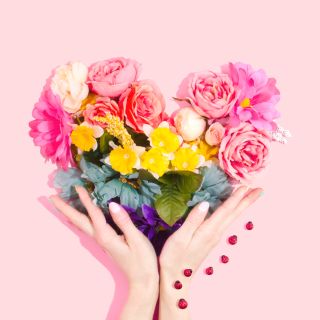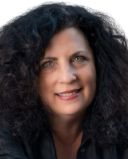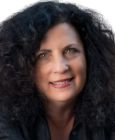Friends
Surviving Mother's Day While Motherless (and Childless)
A Personal Perspective: Focus on the gains.
Posted May 14, 2023 Reviewed by Jessica Schrader
I’m now on my third Mother’s Day without my mother. Fifty with her, three without.

When grocery shopping during the last month, I found myself in the card aisle, looking for a sweet love card for my partner, Mike, since I'm known to surprise him with cards in the mail or hidden in funny places. I was struck by the proliferation of cards in all shades of pink and remembered today was coming. It really does feel sometimes like these days—Mother’s Day and Father’s Day—are coming for us, barreling at us, those of us standing in the without lane.
Still, I needed to get two cards: one for Carol, my mother-in-something since Mike and I aren't married but have been something for nearly 11 years. But, don’t think for a minute that I'm the one in our relationship buying the card and signing it from both of us. Not at all. Every May, I've sent her a card, just from me, thanking her for giving birth to, and raising, my favorite person on the planet. She did 10 times the amount of parenting work of households with two adults; Mike is one of five and his father died when they were small children. I thank her for her mothering and fathering of her #3, or my #1.
The other card was for Rusty, my mother’s best friend since childhood, who will soon be 89. I didn’t grow up around her but when I moved to Austin at age 22 for graduate school and she was living there, we developed our own friendship. For 31 years, she has been my other-mother, and I’m her daughter #4. I’ve been so preoccupied with my own deadlines and other life stuff and hadn’t called her in too long; I phoned her yesterday and she told me how just the other day she had wanted to call my mom to tell her about the carrot soup she was making. It felt reassuring that someone else hungers for my mother just as I do.
Rusty and my mother had enjoyed countless calls and so many about food and recipes that it was natural to want to dial up my mom. When she said it was carrot soup, I laughed and reminded her of the time years ago when my mother went on a carrot spree, which morphed into an anything-with-beta-carotene spree that turned her an odd shade of orange. “Your mother didn’t know from moderation,” Rusty said. And she was correct, her old special friend, my mother, indeed was a woman of extremes.
My childhood friend, Erica, remembers and honors my mom, having referred to her for years as her BFF. Just last week, I sent Erica a brand-new children’s book about Iris Apfel, the iconic designer and fashionista with the enormous and wild glasses, who could pass as my mother’s twin sister. Iris and my mother shared a sense of existing in the extreme; why wear just one bracelet on your arm if you could cover your wrist to your elbow in chunky, colorful bracelets? Getting dressed was like a playful and dramatic exaggeration of children’s dress-up.
My mother, though most often clad in black and what appeared to be pounds of silver draping from her, lived in color. An abstract artist and printmaker, she created well over 1,000 paintings, hundreds exhibited, sold, donated, and gifted, and hundreds and hundreds of others with me now. She was creative to the extreme. As it turns out, she made some of her most vivid and boldly colorful work in her early 80s. At 83, when she fell and got sick, she never returned to her basement studio ever again. No more painting. Ever. She was done. She went from extreme productivity and fullness to extreme nothingness and emptiness. I could focus on the death of her art-making, or I could focus on the life all that art gives me now.
I could focus on the ways that her extreme way of dealing with loss was to shut out everyone before they could do anything. She stopped communicating with Rusty and Erica, and for many months she also stopped taking my calls. She permitted me to visit her on Cape Cod just once in March 2019 when I was already near there for a conference in Boston. And that was the final time I saw her before she died in September 2020. Only the team of women who cared for her in her home were the ones with whom she had conversations.
When I left my life in Massachusetts in 2012 after living there for 18 years and moved to South Carolina at age 42, my mother accompanied me to look for a house and then later to move in. I had the expected moments of angst, wondering about the choices I made. I left a marriage to a man who had been my first friend when I moved to Boston in 1994, I left dozens of important friends, and I left my mother for this new adventure. My mom kept insisting, “Focus on the gains, of which there are so many.”
Four weeks after my move to South Carolina, my father died, and three days later I was starting my new job as a professor at the university. “Focus on the gains,” she said again, “Your father adored you. Yes, he could be difficult, so very, very difficult, but he loved you like no one else.”
Within a couple months, I was loving my new home, my job, the beach nearby, the Lowcountry landscape, and meeting a few new friends. But dating felt nearly impossible in an area dominated by elderly, retired people, and tourists, and I shared my disappointment with my mom. I missed my oldest and dearest friends and the cultural and artistic vibrancy of Boston, and I missed seeing my mom whenever we wanted, often meeting halfway in Hingham for lunch and a walk on the beach. “Yes, Debbie, there are losses, but look at the gains. Focus on the gains.”
Four and a half months after moving here, I met Mike and we’ve been together since. She told him multiple times, “You’re the single best thing that ever happened to Debbie.” Indeed, Mike is a major, major gain.
Yesterday, as I was running errands alone and later went out for dinner with Mike, salespeople and service people wished me a happy Mother’s Day, and one asked what I was doing to celebrate. It’s hard to know how to respond in ways that don’t make well-intended people uncomfortable. I can’t say well, my mother is dead, and that reminds me, Mike and I still need to pick up her ashes in Duxbury, and I made a choice to not have children. As I scrolled through social media earlier today, and post after post relates to Mother’s Day, this flurry of honoring and remembering, I felt stuck in loss.
And then, a few moments later, I could hear my mother pleading with me: “Debbie, just put away your phone, go write, focus on the gains.”




